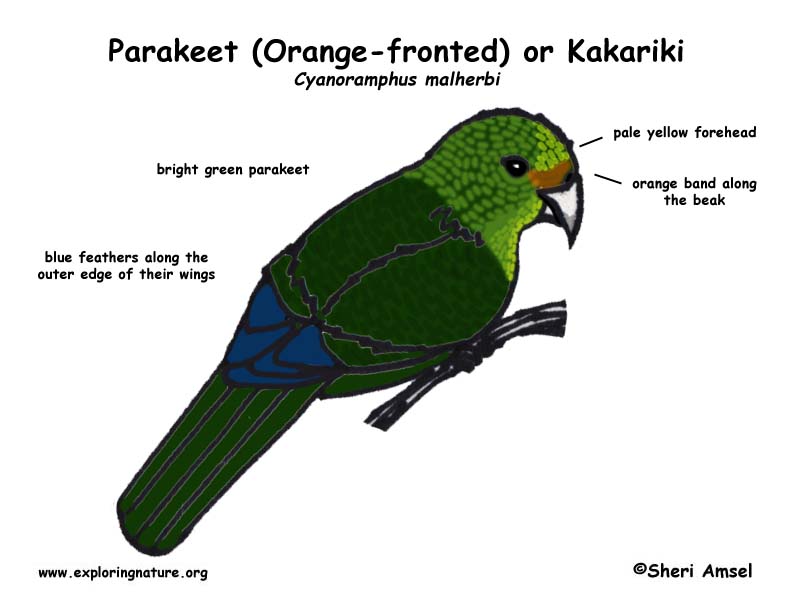

They are found in New Zealand.
They live in beech forests.
They are small, bright green parakeets. They have blue feathers along the outer edge of their wings. They have a small band of orange above their beak and a pale yellow forehead.
Predators brought by visitors to the island (introduced species) like rats, possums and weasels (stouts) can climb trees and eat eggs, chicks and nesting females and have made them the rarest parakeet in New Zealand. Clearing of forests has also hurt their numbers.
They eat seeds, plants, and insects (caterpillars and aphids).
They nest in tree holes high in beech trees. Females lay 5-8 eggs and keep them warm (incubate) for 3-4 weeks.
Domain: Eukarya
Kingdom: Animalia
Phylum: Chordata
Subphylum: Vetebrata
Class: Aves
Order: Psittaciformes
Family: Psittacidae
Genus: Cyanoramphus
Species: C. malherbi
When you research information you must cite the reference. Citing for websites is different from citing from books, magazines and periodicals. The style of citing shown here is from the MLA Style Citations (Modern Language Association).
When citing a WEBSITE the general format is as follows.
Author Last Name, First Name(s). "Title: Subtitle of Part of Web Page, if appropriate." Title: Subtitle: Section of Page if appropriate. Sponsoring/Publishing Agency, If Given. Additional significant descriptive information. Date of Electronic Publication or other Date, such as Last Updated. Day Month Year of access < URL >.
Amsel, Sheri. "Parakeet (Orange-fronted) or Kakariki" Exploring Nature Educational Resource ©2005-2024. December 15, 2024
< http://www.exploringnature.org/db/view/Parakeet-Orange-fronted-or-Kakariki >

